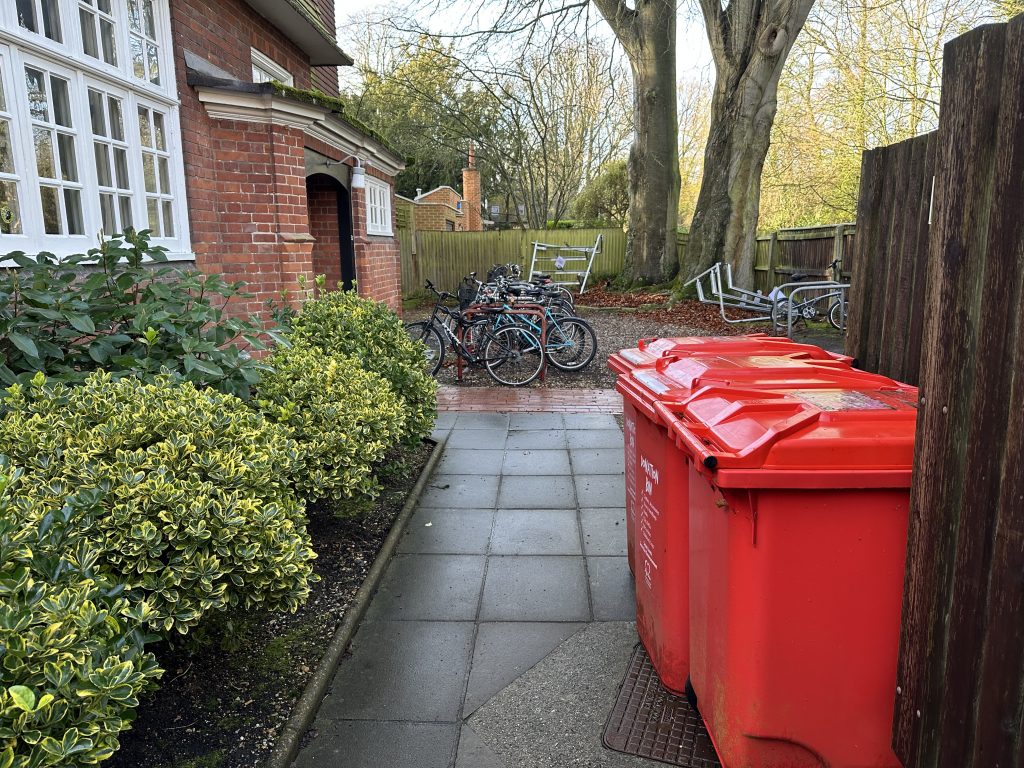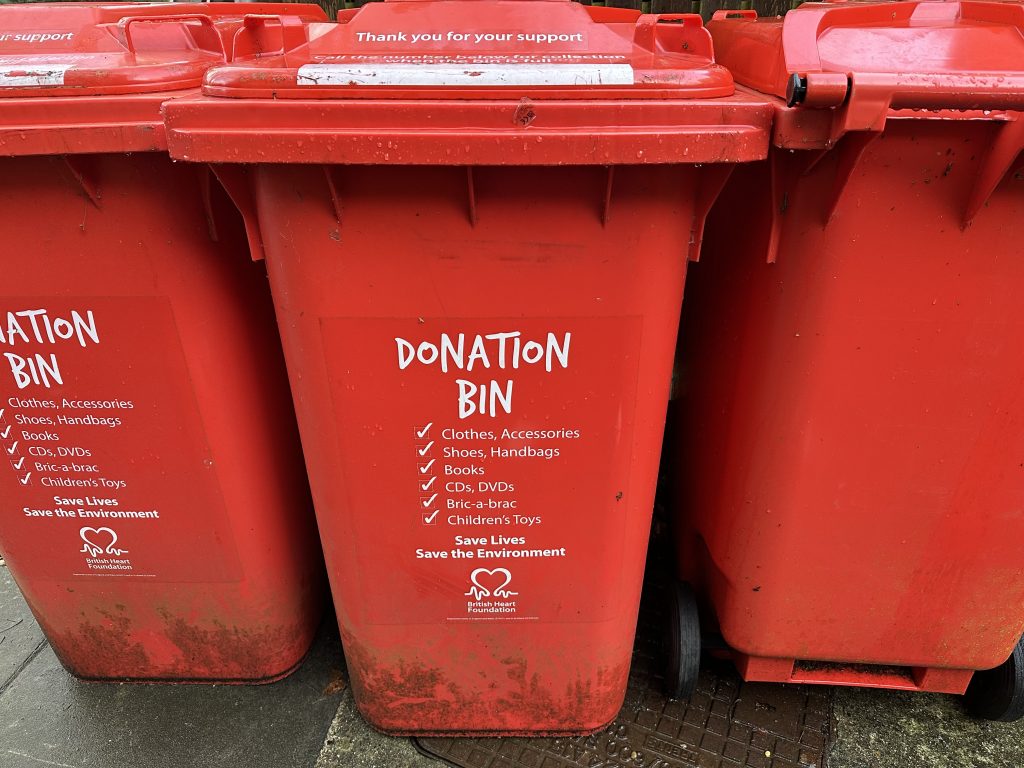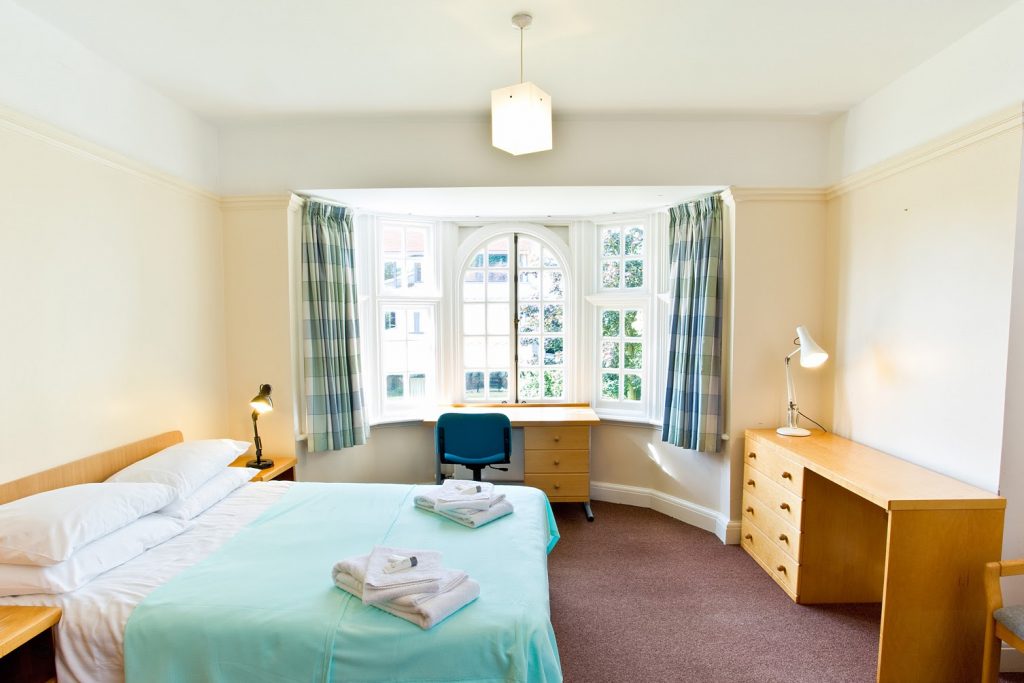Sustainability at Clare Hall: How our housekeeping team is championing recycling and waste reduction
Clare Hall has a strong commitment to sustainability, and has been making a conscious effort to reduce its environmental impact in all departments. This week, we are spotlighting the work of our housekeeping department, and how they are championing initiatives to reduce waste and repurpose household items.
Clare Hall has made strides in encouraging members to reduce household waste, both throughout the academic year and in the turnover period when former students and fellows move out of their accommodation. Since after COVID, the housekeeping team has set up donation bins from the British Heart Foundation (BHF) next to Leslie Barnett House and 9 Herschel Road. Students and fellows are encouraged to donate clothes, accessories, shoes, books, children’s toys, and more throughout the year, which are then collected by the BHF. Donated items that are sold in the BHF charity shops raise money to support life-saving research. These donation bins also ensure that lost or leftover belongings can be treated properly by the housekeeping team, and that less items will need to be directly disposed of.


British Heart Foundation donation bins outside of Leslie Barnett House.
For students residing in College throughout the year, the housekeeping team has encouraged participation in collecting food waste and following proper recycling procedures. There has been a significant increase in participating households this year, with food waste bins in the Michael Stoker, Leslie Barnett, Robert Honeycombe, and Salje buildings. Paper bags for the bins are available from housekeeping for students to bring to their buildings, and collection of food waste is booked for every week. According to the Cambridge City Council, food waste makes up over 30% of waste that ends up in black bins, which reduces the potential of properly treating food waste in a sustainable manner. The contents of food waste (green) bins are composted, which allows them to be sold as compost as well as a soil improver.
Beyond reducing waste, the housekeeping team has taken an active role to reuse and repurpose household items where possible. For example, Clare Hall offers bedding packs of duvets, pillows, and sheets to new students and fellows who arrive every year, including the option to purchase a secondhand bedding pack at a discounted rate. The secondhand packs have been completely sanitized, and only include materials from previous residents that are in good condition, allowing the housekeeping team to recycle up to 50% of bedding. For larger items such as furniture, the housekeeping team rarely purchases new items, and instead aims to repair and refurbish what the College already has. Anything that can’t be used by the College is sent to the BHF for collection, rather than being disposed of. Finally, with regard to everyday processes, the housekeeping team has significantly reduced the amount of chemicals used in cleaning procedures, ensuring that products are chosen intentionally and can be used to cover more tasks.

Clare Hall’s Housekeeping Manager Agi Bundyra has expressed that she is always open for students and College members to be involved in these improvements and share their ideas. Given the small size and close-knit community of Clare Hall, it is much easier to initiate new projects every year. Looking forward, Agi hopes to see representation of more residential buildings at house rep meetings to encourage participation in food waste and recycling initiatives, and to strengthen collaborations that fulfill a shared commitment to sustainability.
Our commitment to sustainability is an ecosystem; it’s not just something we do for one week, but we need to follow up on our efforts. Every year we are taking that extra step up to become a more eco-friendly college.
-Agi Bundyra, Housekeeping Manager at Clare Hall